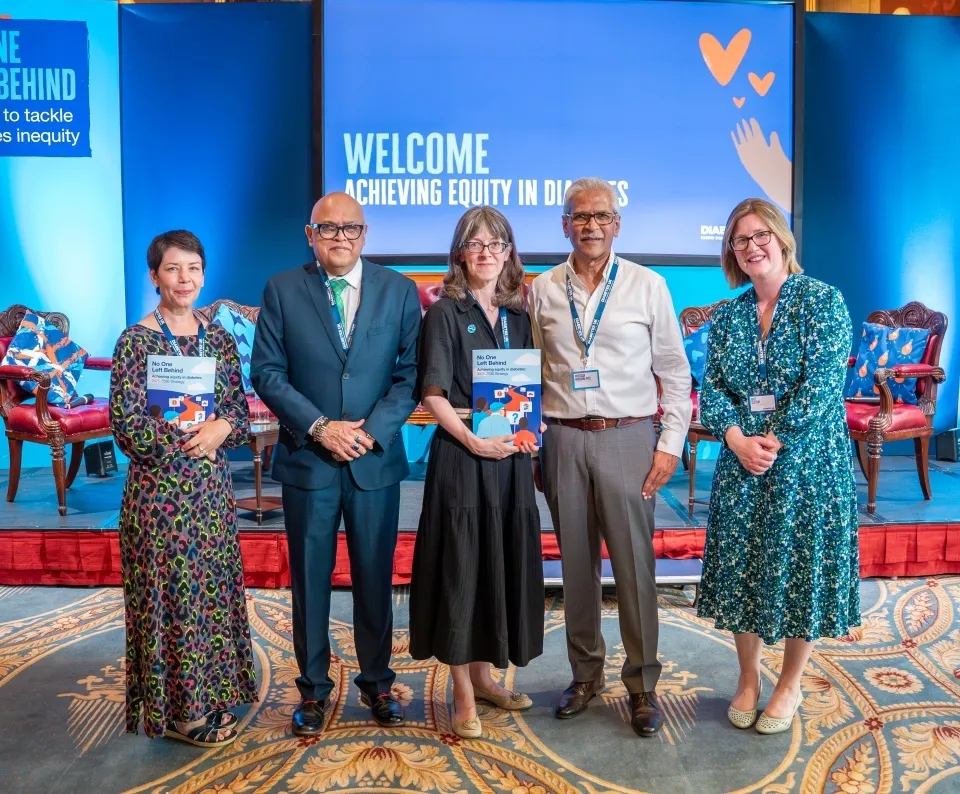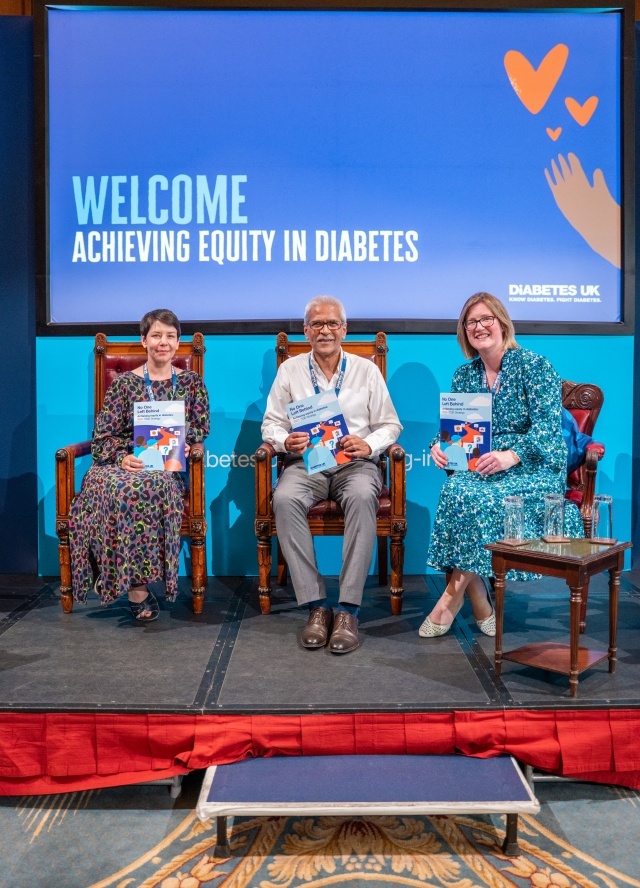
A joint statement from Diabetes UK and the University of Oxford Centre for Research Equity.
Diabetes UK’s No One Left Behind: Achieving Equity in Diabetes 2025–2030 strategy marks a pivotal shift in culture to embed equity across health research and care. As organisations committed to tackling health inequities, we believe this strategy offers a vital blueprint for research charities across the UK.
The evidence is clear: systemic and structural inequities shape who develops diabetes, how early, and with what outcomes. People from Black and South Asian backgrounds, those living in poverty, and individuals with disabilities are more likely to develop type 2 diabetes at a younger age, face barriers to care, and experience more severe complications. People with type 1 diabetes in deprived areas are also more likely to develop complications earlier and have a shorter life expectancy than those in the least deprived areas. These disparities are not inevitable - they are the result of structural disadvantage.
This strategy was developed through extensive consultation with people living with diabetes, healthcare professionals, researchers, and community organisations. The Centre for Research Equity at the University of Oxford played a vital role in this process, helping to ensure the strategy is relevant to all research - not just within diabetes, but across the broader landscape of health research.

For research charities and funders, this is a clear call to action. Diabetes UK’s approach sets a new benchmark. This involves requiring inclusive study designs, representative participation, and co-designed implementation plans. The commitment to ensuring 20% of the research portfolio focuses on underserved communities by 2030 is a bold and necessary step toward redressing historic imbalances.
The strategy also recognises that inequity is intersectional. It’s not just about ethnicity or income, it’s about how these and other factors like gender, geography, and disability overlap to shape people’s experiences. Research that fails to account for this complexity risks reinforcing the very disparities it seeks to address.
Colette Marshall, Chief Executive of Diabetes UK, said:
“Diabetes is a serious condition, made more severe by the deep-rooted inequities embedded across our society. It’s unacceptable that people from global majority communities, those in poverty, and other marginalised groups still face a disproportionately high risk of developing type 2 diabetes, poorer access to treatment and the harshest impacts of diabetes.
“Our new strategy sets out Diabetes UK's commitment to working in partnership with communities to drive change for people with all types of diabetes, and make sure no one is left behind.”
To support this, Diabetes UK has committed to building a stronger evidence base around diabetes inequities. Key actions include:
- Opening a dedicated annual highlight notice inviting projects focused on tackling health inequities.
- Ensuring funding processes are inclusive and transparent, with a focus on diversifying the research workforce.
- Embedding equity considerations throughout research design and delivery.
- Co-creating research priorities with communities most affected.
- Advocating for better data collection on underserved groups, including people with disabilities, migrants and those with multiple disadvantages.
Together, we believe that embedding equity into research is not only essential for fairness. It is critical to delivering better outcomes for all.

| 
|
Top image: From left: Anna Morris, Assistant Director of Research Strategy and Partnership at Diabetes UK, Prof Wasim Hanif, Independent Chair of Diabetes UK’s Tackling Inequities Advisory Group, Colette Marshall, Chief Executive at Diabetes UK, Professor Mahendra Patel, Director of the Centre for Research Equity at the University of Oxford, and Aoife Slattery, Tackling Inequality Engagement Lead at Diabetes UK.
Image in article: From left: Anna Morris, Assistant Director of Research Strategy and Partnership at Diabetes UK, Professor Mahendra Patel, Director of the Centre for Research Equity at the University of Oxford, and Aoife Slattery, Tackling Inequality Engagement Lead at Diabetes UK.
